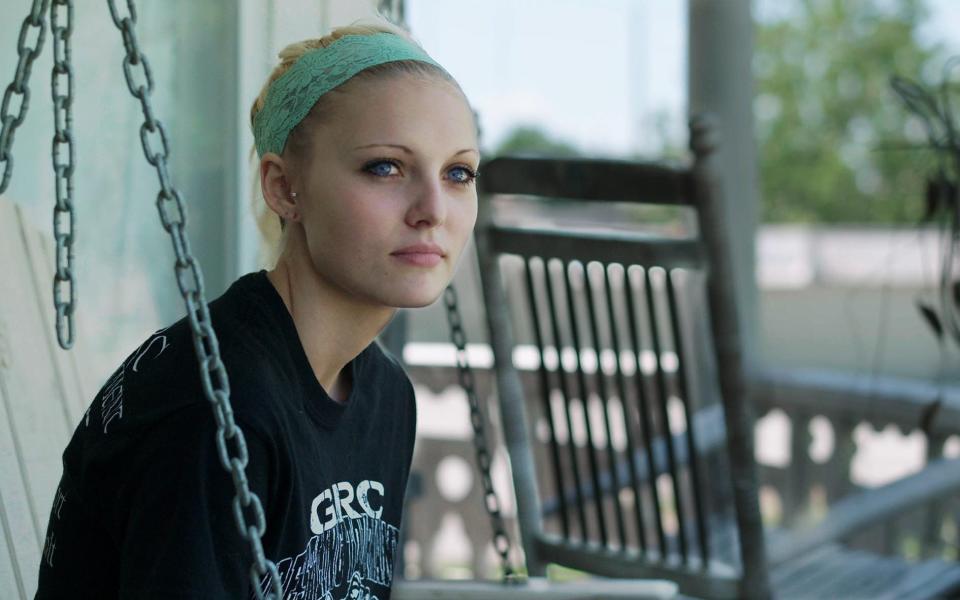Fury and grief after second woman featured in Netflix rape documentary commits suicide

Sexual assault survivors and activists have reacted with fury and grief after a second American woman featured in a Netflix rape documentary took her own life.
Daisy Coleman, 23, was the subject of the 2016 Netflix documentary "Audrie & Daisy" which examined the bullying and social media harassment that teenage assault victims often face.
The award-winning film documented how Coleman, who alleged she was raped aged 14 while another boy filmed the assault, was forced out of her hometown of Maryville, Missouri, after suffering harassment and threats in school.
Coleman's case became a rallying cry for victims' advocates across the US after the sexual assault charge against her alleged rapist, Matthew Barnett, was dropped.
Coleman went on to become a prominent campaigner for sexual assault survivors and had spoken publicly about two previous attempts to kill herself.
The other girl featured in the documentary, Audrie Pott, 15, died by suicide days after she said three boys sexually assaulted her in California in 2012.
Coleman's suicide was confirmed on Tuesday by her mother, Melinda, who said: "She never recovered from what those boys did to her and it’s just not fair.”
Her death has revived public anger over the handling of Coleman's case and renewed debate over how teenage rape cases are treated by authorities.
Scott Berkowitz, president of RAINN, America's largest anti-sexual assault group, told The Telegraph: “Daisy, her story, and her advocacy meant so much to advocates and survivors of sexual violence of all ages - but especially to high school students who saw their own stories reflected in hers."
American actress Olivia Munn said the news was "absolutely heartbreaking". "We have to do more to take care of the young girls in our society," she tweeted.
This is absolutely heartbreaking. We have to do more to take care of the young girls in our society. We have to rally around to protect them and let them know and feel that they’re not alone. Rest in love Daisy Coleman. 💔❤️🌥 (Watch the documentary #AudrieandDaisy on Netflix) pic.twitter.com/V8n1dFblk0
— Olivia Munn (@oliviamunn) August 6, 2020
Corrine Fisher, a podcast host who interviewed Coleman, said: "She was bullied nonstop for telling her story. This is why survivors don’t always come forward."
In 2012, Coleman alleged she was plied with alcohol and raped by Barnett, 17, at a house party in their Missouri hometown. Her mother said she found her daughter outside the next morning, wearing just a T-shirt and joggers in sub-zero temperatures.
Barnett, who claimed he had consensual sex with Coleman, was charged with felony sexual assault. But the charge was later dropped by the county prosecutor, Robert Rice, who determined there was not enough evidence to pursue the case.
Coleman's family claimed the decision was driven by political pressure, since Barnett's grandfather was a prominent politician in Missouri.
Mr Rice said he dropped the charge because the Colemans stopped cooperating with his investigation. Barnett eventually pleaded guilty to a lesser charge of child endangerment with a suspended sentence after a review of the case.
The anger around Coleman's death has also prompted renewed backlash against the then county sheriff, Darren White.
Mr White was voted out of office in 2016 shortly after appearing in the Netflix documentary in which he said: "girls have as much culpability in this world as boys do".
Mr White is running for the sheriff's position again this November, but a public campaign to block his election has already begun.
In an editorial this week, the Kansas City Star, the local paper credited with bringing national attention to the case, said: "[Coleman's] death highlights the many ways the criminal justice system too often fails victims of sexual assault... In Daisy’s case, too many grown-ups turned a blind eye for far too long."

 Yahoo News
Yahoo News 